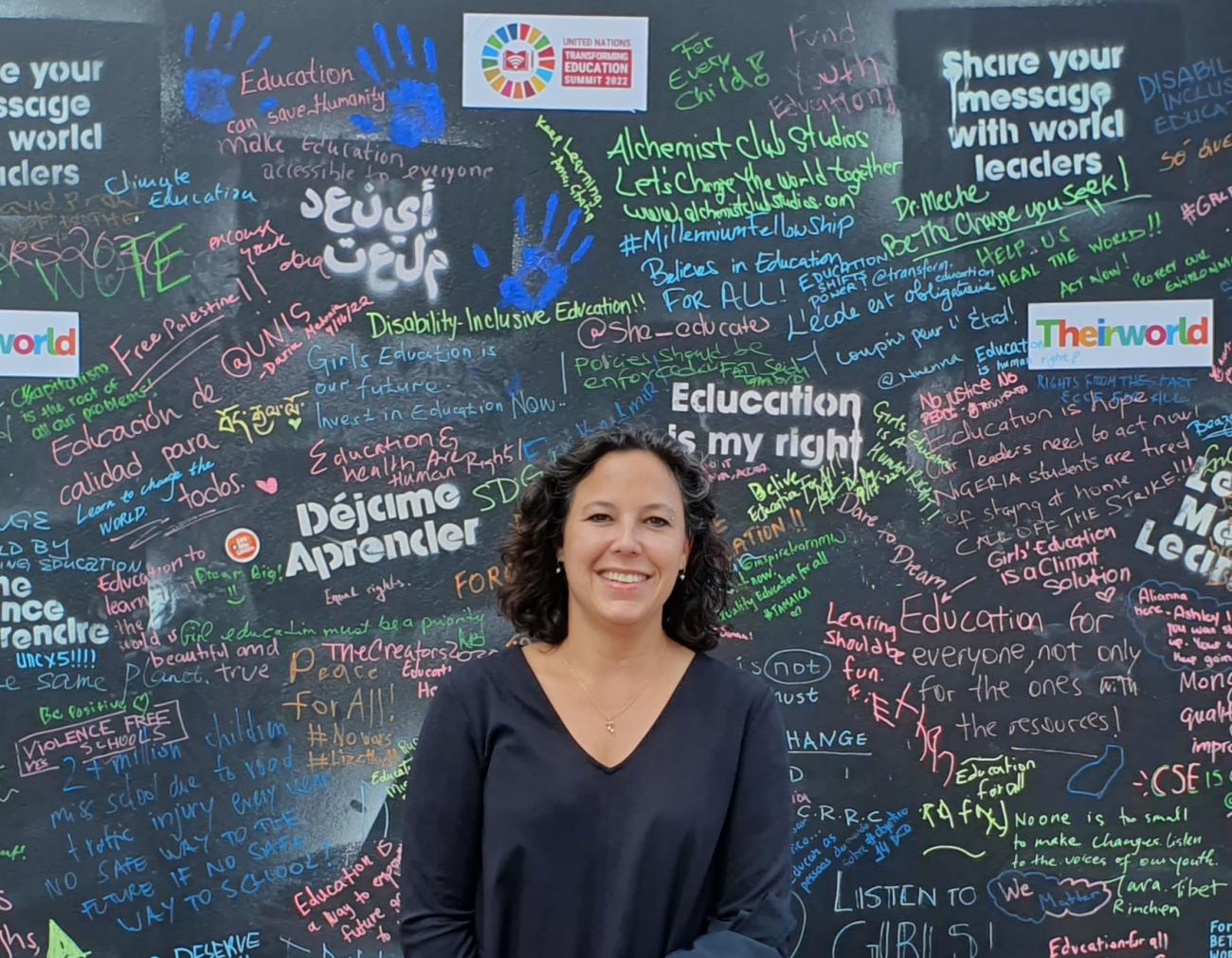The global crisis in education is having a devastating impact on the futures of children and youth worldwide. Işık Tüzün, Director of the Education Reform Initiative in Türkiye, shares her observations from the Transforming Education Summit, where youth leaders discussed the future of education. Tüzün attended the summit held in New York in September 2022, with the support of UN Women Türkiye.
“The Transforming Education Summit (TES) was conceived as a reaction to a global crisis of equity and inclusion, quality and relevance in education, and to the urgent need for accelerating progress towards Sustainable Development Goal (SDG) 4 on quality education. This goal is closely connected to SDG 5 on gender equality.
Since its launch 20 years ago, the Education Reform Initiative (ERG) has been advocating for inclusive and quality education as well as gender equality in and through education in Türkiye. In recent years, as the ERG has been monitoring pandemic-related losses and widening disparities, my colleagues and I strongly felt the need to rethink and transform education systems in an age of multiple crises. We share the sense of urgency communicated by the Summit. I feel very fortunate to have represented ERG in the Transforming Education Summit and to participate in the ‘Mobilization Day’ and ‘Solutions Day’ sessions.
‘Mobilization Day’, which was youth-led and organized, was a source of inspiration for several reasons. A common theme in the ‘Mobilization Day’ sessions was to rethink the purpose of education, whilst ensuring meaningful youth participation in this vital process. The sessions that brought education ministers together with youth leaders from different countries offered very valuable insights into ongoing youth engagement initiatives. The Youth Declaration on Transforming Education was also announced during the ‘Mobilization Day’. I consider the Declaration an essential guiding document, and I hope it will be treated as such by decision-makers and other stakeholders as well. The vision, demands, and commitments put forward by the Declaration often go beyond the national statements of commitment to transforming education.
The ‘Solution Day’ sessions focused on a wide range of critical issues for safeguarding inclusion and equity in education. Many new or ongoing initiatives were presented. The sessions focused on crucial issues such as school feeding, transforming education with and for girls, teacher policies, and digital skills. Especially the sessions where international and multi-stakeholder alliances shared their experiences and recommendations were quite informative and thought-provoking.
Girls’ education and gender equality in and through education were among the cross-cutting issues that were promoted across all three days of the summit. “Advancing gender equality and girls’ and women’s empowerment in and through education” is one of the seven global calls to action adopted at TES. The calls to action announced during the Summit highlight critical thematic priorities and invite key stakeholders to respond by taking a series of actions. The call to action on gender equality will be followed up on and monitored by the SDG 4 High-Level Steering Committee besides existing advisory bodies and a new global platform for gender equality and girls’ and women’s empowerment in and through education.
While improving girls’ access to education has been on the agenda for many countries for a long time, unfortunately, one cannot say the same for ‘gender transformative education’. The latter approach represents a more holistic approach and is better aligned with SDGs 4 and 5. It is imperative that this latter approach is widely adopted so that sustainable transformation in and through education can be achieved for all.
Işık Tüzün’s participation in the Transforming Education Summit was supported by UN Women Türkiye through the Strong Civic Space for Gender Equality project funded by the European Union. Tüzün’s work relates to SDG 4 on ensuring inclusive and equitable quality education and promoting lifelong learning opportunities for all, and also to SDG 5 on achieving gender equality and empowerment of all women and girls.




